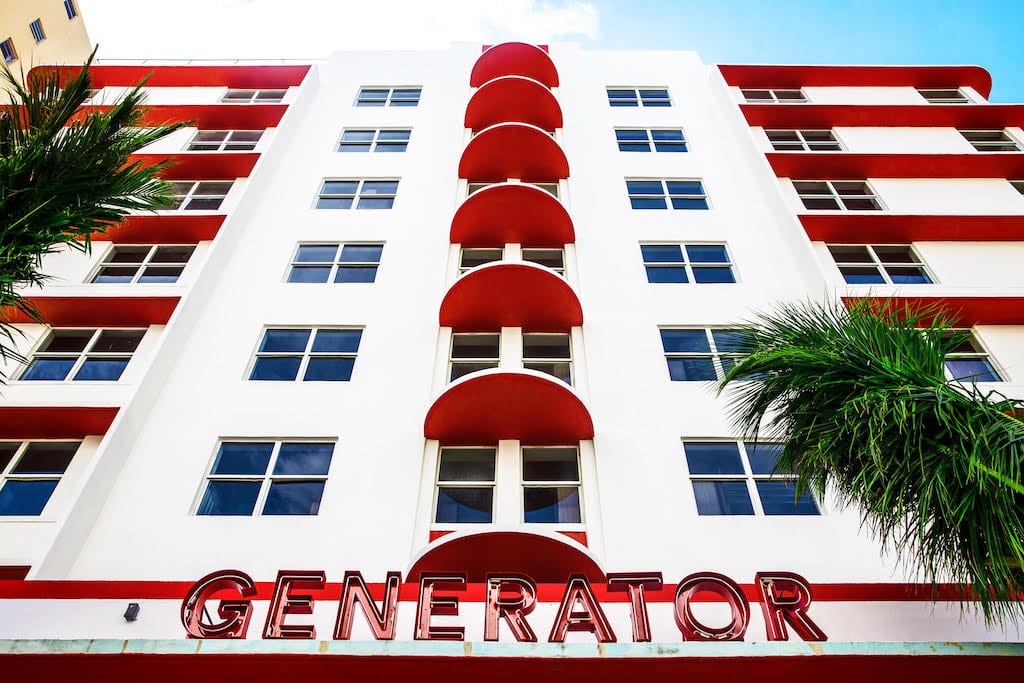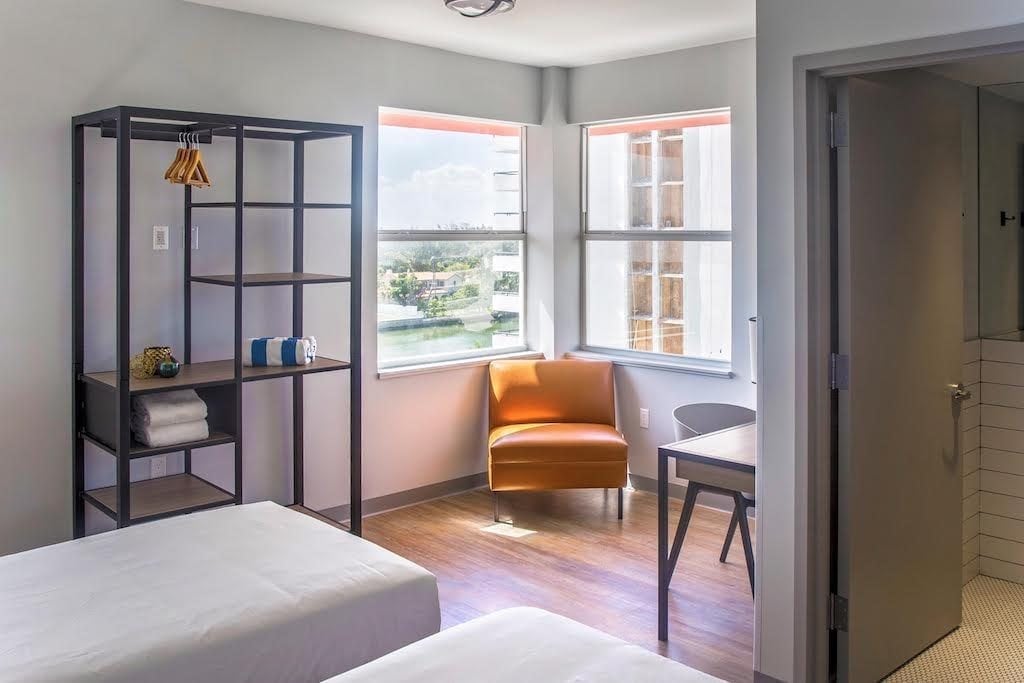Skift Take
Does it really matter whether you call a place to stay a hostel or a hotel anymore?
London-based Generator has always been known as a brand eager to upend preconceived notions about what a hostel could be.
So, it makes perfect sense, as the 14-property brand matures and expands into new markets — including Miami this month — that Generator drops the “hostels” part of its name and moves forward simply as “Generator.”
“I think the hostels part is going to disappear generally,” Generator CEO Alastair Thomann said. “The moment we call ourselves ‘hostel,’ it limits us in certain markets.”
“If we had to call ourselves ‘Generator Hotels,’ that’s a complete misrepresentation,” Generator Chief Marketing Officer Jason Rieff added. “The same way as if we had to call ourselves Generator Hostels. Although that’s something that historically has been our name, it’s also not really a full representation of who we are.”
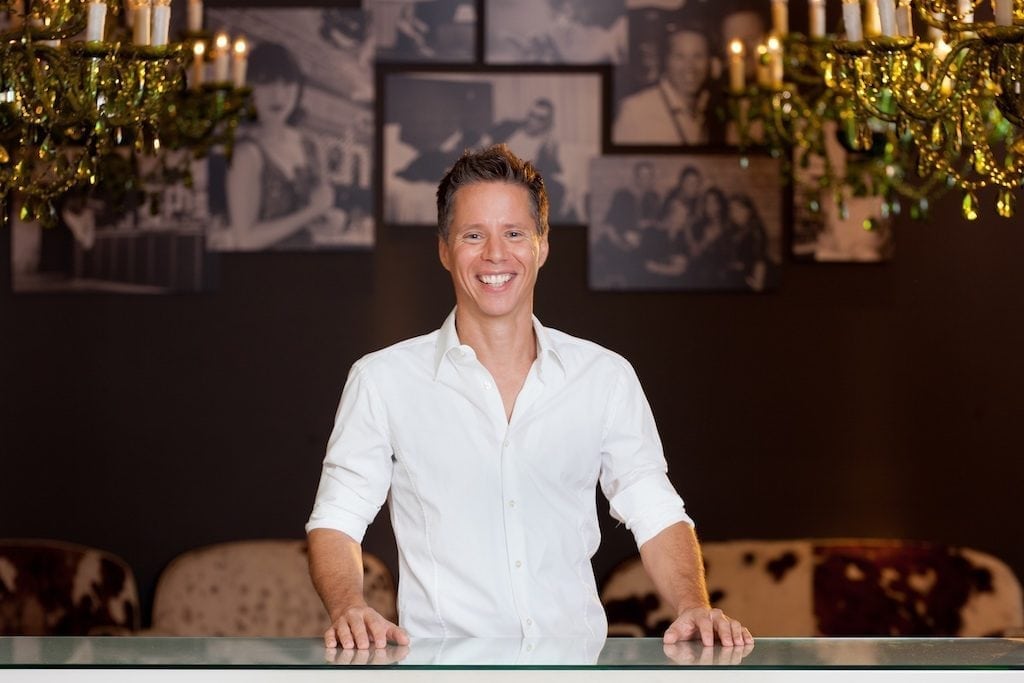
Generator Hostels CEO Alastair Thomann says the brand will eventually drop the “hostels” part of its name. Source: Generator
Not only that, but as the brand expands to new markets, North America included, it’s finding it challenging to move forward with “hostels” in the name.
“There’s a very negative connotation toward the word ‘hostel’ in the American market, irrespective of what your product offering is. If it has the word ‘hostel’ in it, there will be negative connotations,” Rieff said. “In Europe, hostels are the go-to place for Millennial travelers, so it’s a very tricky situation of how we position ourselves in Europe to how we position ourselves in the U.S., and that’s something we’re trying to bridge.”
What Generator really is, Rieff and Thomann said, is more of a hybrid between a boutique hotel and a hostel driven not only by what today’s consumers want, but also reflecting where the overall hospitality industry is headed. It’s another byproduct of the convergence we’re seeing in which traditional accommodation categories are beginning to blur.
“Our industry, in general, what we used to call the hostel industry, in terms of the luxury hostel, is moving more and more toward boutique hotels,” Thomann said. “And you’re finding boutique hotels adding dorm rooms; they’re moving toward the hostel model. It’s more about the social spaces and the community. At some stage, we’re going to be very close together, these two segments.”
Some of those examples include Sydell Group’s Freehand, Marriott’s Moxy, AccorHotels’ Jo&Joe, and Hilton’s upcoming “hostel on steroids.”
“Now think of your classic three-star, four-star hotel brand — is there going to be a space for that in the coming years?,” Thomann asked. “What’s going to happen to them? Who’s going to open up, oh I don’t want to name any brands, but a Courtyard by Marriott or a Four Points by Sheraton? They’re going to have it really tough because the industry is moving, becoming more exciting, a little bit more controversial and more design-led and more about community.”
Given this category convergence, and the fact that new contenders are numerous and multiplying, Thomann and Rieff know that Generator as a brand needs to evolve, as does the traditional hostel industry. Skift recently sat down with both executives at our offices in New York to discuss this evolution of both the Generator brand and the hostel industry.
Evolving Generator
Thomann isn’t new to the hotel industry. Prior to his CEO appointment at privately held Generator, he was the CEO of Pentahotels, the lifestyle-driven brand from Rosewood Hotel Group. He joined Generator last year after the company was sold to a new private equity firm, Queensgate, for $480 million.
More than a year since leading Generator, Thomann has made it his mission to not only continue the work of former Generator CEO Fredrik Korallus and former Generator co-owner and chief strategic officer Josh Wyatt, but to build on it.
His vision for Generator, Thomann said, is to be a “continuation” of what Wyatt and Korallus began, as well as to make it a highly profitable business.
“Our biggest job here is to be putting in systems, actually making this whole thing profitable,” Thomann said. “We took over a company where 95 percent of reservations had to be manually inputted,” he explained. “In the hotel industry, people would say, ‘Oh my God, this is like 20 years ago.’ We’re making it more professional, more profitable, and putting in a revenue management system,” a first for the hostel industry, he says.
Overhauling Generator’s back-end systems have resulted in a sizable increase in profits, both said. “Our profits have gone from €20 million ($23.1 million) to €26 million ($30 million) to now €33 million ($38.1 million) in the space of 24 months,” Thomann said. [Editor’s Note: Skift could not independently confirm the accuracy of these profit numbers.]
“People are realizing that, by having rooms with more beds in them, you can make more money,” Thomann added.
When asked if Generator will always remain independent, Thomann said it was inevitable that the company would, at some point, be purchased.
“I think that’s one of the reasons why Queensgate would have bought it — to sell it again. Consolidation will happen by then, let’s face it.”
As Thomann and Rief focusing on bringing its back-end systems up to speed, they’re also looking at eventually opening up Generator’s business model to include franchise and management contracts, instead of owning each of the properties as it currently does with all save for two properties that Generator currently leases.
“We’re open to that,” Thomann said. “I think that’s going to (boost) our expansion much faster.”
For now, however, Rieff said the brand is primarily focused on “solidifying who we are and solidifying our product and what’s we’re doing,” noting that Generator’s first franchise or management contracts might likely appear a year from now.
Not Just for Millennials
Along with attempting to upend any perceived negative connotations associated with hostels, Generator is also trying to debunk the assumption that it’s primarily a brand for Millennial and Gen Z travelers.
“It’s about a miillennial and Gen Z mindset,” Thomann said. “It’s a mindset that people want to say in a hostel, they want to experience that social experience, and they want to be mixing and milling with people of all ages. It’s relaxed and totally unpretentious.”
He said that, having stayed for more than a month at Generator’s London location, he saw “all age groups” represented, from families and Millennials to older travelers and “the suits,” acknowledging that more business travelers are considering the Generator brand when they travel for work.
In fact, Thomann and Rieff said, the company is also currently looking at adding co-working spaces to its properties and offering a co-living type model.
“We’re just starting a product where you buy your room for a month and you get a workspace to go with it,” he said. “I think this is somewhere where the segment will be going to. We’ve also been approached by some of the co-working operators because we have got some spaces that could be converted. I’d say watch this space.”
It’s a slow — but eventual — evolution, according to Thomann. He also noted that some properties sell apartment-style units by the month, and that there’s one regular guest in London who has stayed at the hotel for three weeks of every month for the past two years.
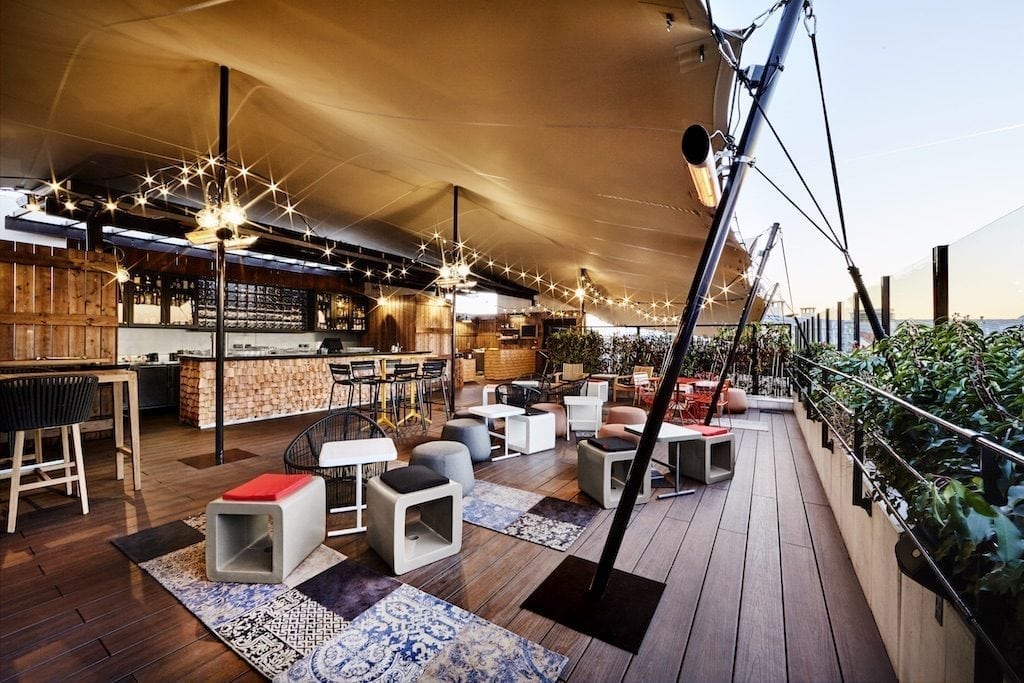
The rooftop at Generator’s Paris location. Thomann and Rieff said each property’s social spaces are a main draw for guests. Source: Generator
The Distribution Landscape
Like Generator’s fellow hotel and hostel peers, the brand is making a concerted effort to drive more direct bookings, while still recognizing the value of online travel agencies such as Hostelworld.
“We’re becoming very exponentially less and less reliant on OTAs [online travel agencies], and that’s got to do with everything from the type of marketing tactics that we’re doing on our brand.com, but it’s also through everything we’re doing on social and through brand partnerships,” Rieff said.
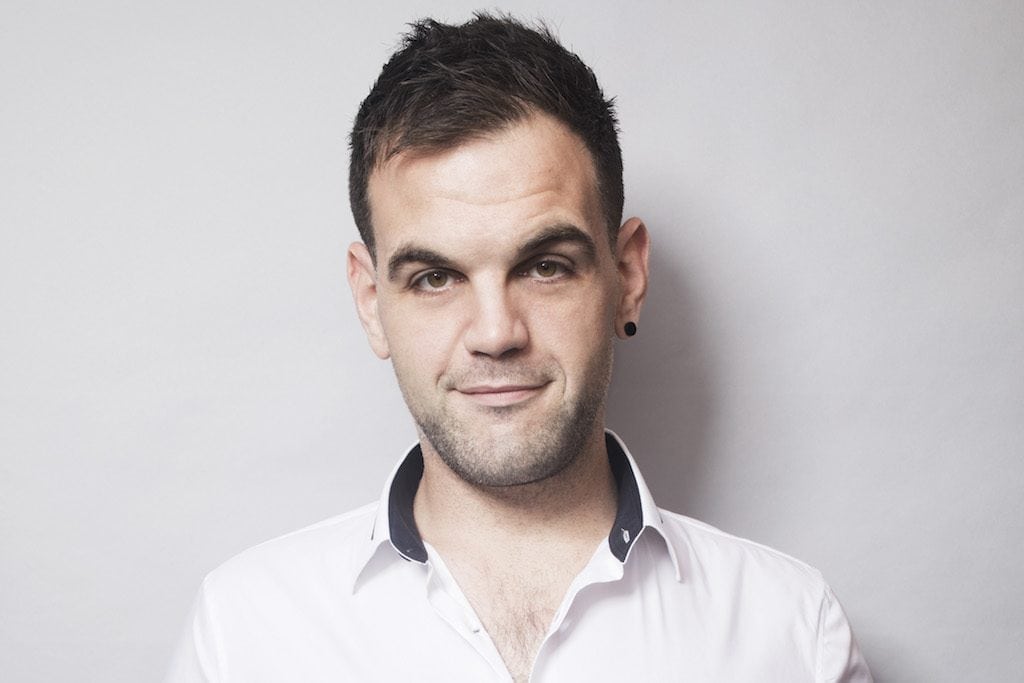
Generator chief marketing officer Jason Rieff has made it his objective to use marketing to get more direct bookings for Generator. Source: Generator
Thomann said Generator’s direct bookings, year to year, are up 40 percent and above 30 percent now. “The OTA segment was about 50 percent for us at some point, and now it’s only around 40 percent and it’s continuously in decline.”
Still, Thomann noted that OTAs are “still essential for us” and that those, like Hostelworld, who are currently engaged in major campaigns aimed at changing people’s perceptions of hostels are helping Generator reconfigure consumers’ perceptions.
And what about Airbnb as a potential distribution channel as well? Thomann said, “We’re looking at that at the moment. I think Airbnb is an amazing brand and, if you can’t beat ’em, join ’em, and I think that’s be our approach to that.”
The New Generator in Miami
The newest Generator, slated to open this month in Miami, marks a number of firsts for the brand: its first location in the United States and its first resort property.
Understanding that the Miami market is different from that of Europe, Generator has also evolved how it developed the project, lessening the number of beds in the property from 350 to 300, spread out over 105 rooms, and adding more private rooms that have the flexibility to become a dorm room, thanks for a Murphy-bed style contraption.
“The next part of the evolution is making the product even more flexible within each property to really optimize your profits, depending on the market demand at any given time,” Thomann said.
Have a confidential tip for Skift? Get in touch
Tags: generator, generator hostels, hostels
Photo credit: The exterior of Generator's newest property, the Generator Miami. Generator
